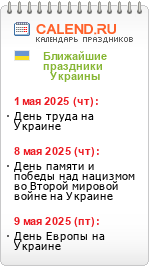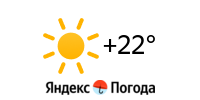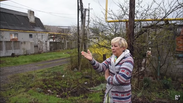Почему пришла война и когда она уйдет
|Признаюсь, тяжело настроиться и что-то написать. Главная причина – внутреннее опустошение. Вторая – все, что можно было об этом сказать, я сказал в 2014 году. В принципе, можно брать и репостить из того темного прошлого в наше не менее темное настоящее. Окажется ли это душеполезным – не знаю.
Еще ловлю себя на мысли, что в понимании войны ближе всех мне известный режиссер Хаяо Миядзаки.
Смешно, да? Нет, не смешно. Война у него – совершенно самодостаточная инфернальная сущность, которая действует исходя из собственной логики. Призывы и увещевания на нее не влияют, они для нее просто ничтожны. Она уйдет только тогда, когда довершит свою работу, соберет нужный ей урожай жертв и боли, насытится и на время уснет.
ДиалогитипаПлатонна зимой 2022 года
|- Уже ж декабрь? Как там декабристы?
- Сначала намечались торжества, потом аресты, потом решили совместить
- Прикинь, мы с тобой обсуждаем, что неплохо было бы банк взять и Серегу позвать, потому что у него машина есть. И Серегу, который и машину уже продал, тут же принимают за соучастие
- История явно придумана Беней, чтобы прижать Рината. Этим вся его борьба с олигархами и закончится
- Пчёлы против мёда какие-то. Они ж даже вынуждены обновить левую повесточку, которую сами и похоронили
- Нет, много хуже и совсем не ту, что нужно. Помнишь старый анекдот про внучку декабриста в 1917 году? Мой дедушка боролся не против богатых, а чтобы не было бедных. Это оно
- Точно! И гвардия обходит всех с флангов
* * *
- Двенадцать имамов, десять гуру, восемь смертных грехов
- Их же семь?!
- Не скажи, у кого как
Неожиданно тихая ночь в Донецке
|Выпал робкий снежок и на улице очень светло. Так должно быть на Новый Год, но, как известно, на сарае тоже написано, а внутри почему-то дрова.
А ночь тихая и светлая. Не знал бы - не подумал бы, что на сотни километров вокруг нет ничего кроме слез, боли, страха и смерти.
Но снег растает. Думаю, что утром вместо этой хрупкой красоты увижу лишь старую-добрую грязь.
Выпадет ли новый? Не знаю.
Возможно, что это последний снег уходящей зимы. И для многих он станет последним в жизни. Для кого из нас?
Люди говорят, что хотят спокойной жизни. Хорошо понимаю. Я тоже очень ее хочу. Но с грустью понимаю, что спокойной она не будет уже никогда. Независимо от того, чем кончится то, что было начато отнюдь не сегодня, не месяц и даже не год назад.
Когда нужно думать как выжить и не оскотиниться
|Можете сколько угодно меня ненавидеть, писать гадости и все такое., но!
Сегодня в квартире моего деда вынесло окна. Предвидя вопросы, сразу оговорюсь, что дед в порядке.
Я к тому, что это уже далеко не в первый раз. А человеку уже за восемьдесят. Он Великую Отечественную малым ребёнком встретил.
Ещё перед войной дед с бабушкой были совсем не такими. Они были веселыми, жизнерадостными. В их квартире всегда было уютно. В первые дни войны дед ещё сохранял оптимизм. Даже погнал нас с отцом в обстреливаемый гаражный кооператив - эвакуировать его самогон.
И треснул мир напополам, в семье разлом
Дочь написала нам с женой открытое письмо в Фейсбуке. Жена написала ей ответ. Но у нее нет страницы в ФБ, поэтому публикую его на моей.
Знаю, доченька, что куришь. Давно знаю. Это очень плохо, это зря. По себе знаю. Лучше бы ты бросила. Маше, кстати, очень не нравится сигаретная вонь. Еще материшься. «Закидываешь снюс» - что совсем глупо. Но не об этом сейчас. Спасибо, хоть так можем что-то сказать друг другу. Будет много букв, но потерпи уж пожалуйста. Это один раз.
Ты молодец. Написано талантливо. С хорошим детским пафосом. Не глубоко, но вполне эффектно, - в общем, очень современно. И своевременно. Именно так, как надо для твоей аудитории. Умница, дочка!
Я всегда знала, что ты легко обучаема. Наверно все-таки неплохой генетический набор тебе достался.
Почему Донбасс не замечали и не замечают?
|Читал где-то, что японцы на побережье не зря домики из дерева и бумаги строили. Прошёл какой-нибудь ураган, а они «раз-раз» и отстроились. Ну…не знаю.
Если так, то с японцами у нас много общего. О бабушке и сыне из прифронтового посёлка рассказывал когда-то. Ей в дом прилетит - у сына живут, а тот ремонтируют. Закончили - в сыновний дом прилетает. Перебираются к матери и снова чинят. Так восемь лет и живут. Если живы теперь.
А на районе атмосфера - «мама, не горюй». Журналисты знакомые покурить дернули, а я гляжу - кофеенка моя открылась. «Чего это вы?», - спрашиваю. «Решила открыться. Второй день уже», - спокойно отвечает девушка, заваривая латте. И это после вчерашнего обстрела.
Почему не надо думать, что Зеленский - голубь мира
|Над Зеленским хорошо поработали. Образ «президента-воина» из Голливудского кино выдержан «от» и «до». С Саакашвили когда-то не дотянули и пришлось Ренни Харлину целый фильм об этом снимать, чтобы образ выровнять.
И футболку защитного цвета ему выдали, и бриться запретили, и даже модный шлем с бронежилетом наконец отобрали. Ну чем не лидер нации из фильма «День независимости»? Политтехнологи не зря едят свою нетрудовую булку с маслом.
А вообще интересно, что россияне толком не понимают, кто есть пан Зеленский и в чем его беда. Пишут, что обстреливать при нем стали реже, и риторика его была мягче. Но все это фигня, дорогие мои!
Сказка о медведе и сельском дурачке Мыколе
Жили мужики возле леса. Много грибов и хвороста было в лесу. Но в лесу водился медведь. Вроде и не злой особо, но в лес свой не пускал. Но вот пошел слух, что медведь заболел и похоже, что грибы и хворост теперь стали доступными. Но все равно боязно, а вдруг слух ложный?
И тогда решили мужики послать в лес сельского дурачка Мыколу. И посмотреть что будет. Перед походом дали ему черенок от старой тяпки и всячески мотивировали, что миссию благородную ради человечества выполняет. Пообещали сивухи налить как вернется и сальдисона кусок на закусь.
Мыкола преисполнился, сопли рукавом вытер и пошел. Приходит а там медведь спит. Дохлый подумал Мыкола своим скудным умом и стал потапыча палкой тыкать. Тыкал, тыкал, по носу щелкал, поджопники раздавал, в итоге вообще решил обоссать медведя. Тут медведь проснулся и выебал Мыколу.
Пять пунктов к непростому текущему моменту
|Совсем немного базовых пунктов к текущему непростому моменту
1.Если наказывать собаку или котика не сразу после того как они нашкодили, то животные не воспринимают это как акт воспитания, но только агрессии. С людьми чуть сложнее, но восемь лет это восемь лет
2. Агрессия всегда проигрывает в массовом сознании, потому что воспринимается как покушение. Защита всегда в приоритете - см. Министерства обороны агрессивных стран, которые с обороной не имеют ничего общего. Если же агрессию осуществляют общепризнанные хулиганы с района, со сформированной годами репутационной платформой, то она сразу квалифицируется и по предварительному сговору, и группой лиц, и как рецидив. Правосудие это инструмент
Почему антивоенный парад российских, украинских и зарубежных селебов вызывает дикую ярость
|Вторые сутки думаю о том, почему на самом деле антивоенный парад российских, украинских и зарубежных селебов вызывает у меня эту дикую ярость.
А тут включил ролик на отстраненную тему, увидел баннер с извинениями перед Украиной и все понял. Все, сразу и навсегда.
Не ваши друзья и родственники, презираемые мною селебы, обнимают сегодня детей в подвалах и бомбоубежищах. Ни там, ни здесь. Не ваши.















